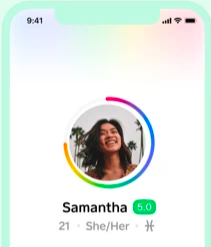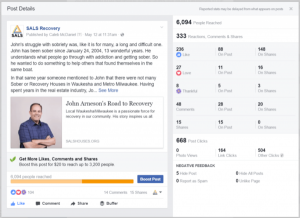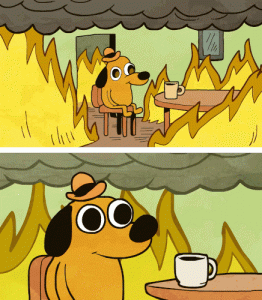
How could this cute fella be a problem?
If there’s one element of community management you’re going to hear about, it’s trolls. There are countless articles about them, and how to deal with them. It’s clear that trolls are a key facet of community management in popular culture and that the methods for dealing with them are crucial.
Except of course, they aren’t. Clever trolls are ones that can fly under the radar for a long time, and they’re vanishingly rare. Modern trolls are highly visible, they want to be seen, to shout and scream and rant. If you have a vigilant moderation staff, taking care of them is as easy as clicking two buttons. The biggest problem most communities face isn’t obvious vandals smashing windows, it’s regular community members who gradually and insidiously work to make your community a less welcoming place.
A Single Toxic User Is Worth A Dozen Trolls
This isn’t necessarily deliberate, it can be a natural outgrowth of their own personalities or a conscious attempt to keep “their” community how they like it. They’ve almost certainly read the rules and know precisely where the lines are and how far they can push things before running afoul of the moderation staff.
These users are the single biggest barrier to engaging new users. Many community guidelines forbid outright insults while leaving the way clear for rudeness, passive-aggression and other exclusionary behavior. These behaviors are much more harmful from veteran members, who give the impression that they’re speaking on behalf of the community. If left to run amok, these users get exactly what they want: a community where they’re at the top of the heap because new members have stopped joining and other regulars have realized they have better things to do than hang out with awful people. Whatever you use your community for, a complete lack of new blood is a sign that it’s stagnant and failing. If you’re still seeing sign-ups but not converting them into contributors, toxic users are likely to be the problem. I’ve even seen it get so bad that community managers will bring the worst users on as moderators. After all, they’re now the most active members.
How To Handle Toxic Users
So what should you do about it? Start from the top by ensuring that your community guidelines are effective at creating a good atmosphere. Ensure that they have enough flexibility to allow your moderators to handle all types of toxic behavior, not simply overt insults and abuse. If your rules are cast in iron and overly specific, members who have enough time on their hands will always find ways around them. The focus of your guidelines shouldn’t be specific behaviors, but the responsibility of members to create the kind of community atmosphere that you want to see.
It’s also important simply to be aware of the potential for subtle abuse and micro-aggressions in your community. Try making some dummy accounts and making new threads in your community. Look at the responses, and consider the following points:
- What kind of tone of response do new users see? Are they uniformly friendly, or is there a high degree of snark? Are there particular users responsible for bad responses?
- How does the response change if the question is stupid, answered in an FAQ or breaks an unwritten rule? Are there an unreasonable amount of ways a hapless user can trip themselves up?
- How does diversity affect the results you see? If your profile picture is female, do you receive different responses, microaggressions or creepy private messages?? How about different profile information, indicating religious or ethnic differences from your average member?
Bear in mind that even if you receive ten positive responses, a single negative, unpleasant response can drive a new member away. Members tend to count the misses, not the hits. I recently saw someone unfamiliar with forum communities post on a fitness website for advice. Out of twenty responses, only one was negative, but it was enough to have her not only swear off that site, but similar communities. Every time this happens in a community, it’s a member that will never provide support to other users, talk to their friends about your community, check out a banner ad or buy one of your affiliated products. If you owned (or do own) a store front, you wouldn’t accept a customer hanging around and subtly belittling and insulting other customers. Don’t accept it in your online community either.
(243)










